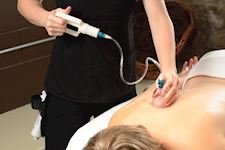Complementary Medicine Diploma
Complementary Medicine Diploma
Elearn College
Summary
- Certificate of completion - Free
Add to basket or enquire
Overview
Complementary Medicine is suitable for anyone aspiring to or already working in this field or simply want to learn deeper into complementary medicine and Care.
To make this Complementary Medicine course more accessible for you, we have designed it for both part-time and full-time students. This Complementary Medicine course is packed into the bite-size module for your convenience. You can study at your own pace or become accredited within hours!
If you require support, our experienced tutors are always available to help you throughout the comprehensive syllabus of this Complementary Medicine course and answer all your queries through email.
Through this Complementary Medicine, you will be well informed and up-to-date on the topic of complementary medicine, together with a comprehensive understanding of the functions of the human body.
Complementary and alternative medicine (CAM) is a broad domain of healing resources that encompasses all health systems, modalities, and practices and their accompanying theories and beliefs, other than those intrinsic to the politically dominant health system of a particular society or culture in a given historical period. CAM includes all such practices and ideas self-defined by their users as preventing or treating illness or promoting health and well-being. Boundaries within CAM and between the CAM domain and that of the dominant system are not always sharp or fixed.
Course media
Description
Complementary medicine: A group of diagnostic and therapeutic disciplines that are used together with conventional medicine. An example of a complementary therapy is using acupuncture in addition to usual care to help lessen a patient's discomfort following surgery.
Complementary medicine is different from alternative medicine. Whereas complementary medicine is used together with conventional medicine, alternative medicine is used in place of conventional medicine. An example of alternative therapy is using a special diet to treat cancer instead of undergoing surgery, radiation, or chemotherapy that has been recommended by a physician.
According to the National Center for Complementary and Alternative Medicine of the National Institutes of Health (NIH), complementary and alternative medicine (CAM) can include the following:
-
acupuncture,
-
Alexander technique,
-
aromatherapy,
-
Ayurveda (Ayurvedic medicine),
-
biofeedback,
-
chiropractic medicine,
-
diet therapy,
-
herbalism,
-
holistic nursing,
-
homeopathy,
-
hypnosis,
-
massage therapy
-
meditation,
-
naturopathy,
-
nutritional therapy,
-
osteopathic manipulative therapy (OMT),
-
Qi gong (internal and external Qigong),
-
reflexology,
-
Reiki,
-
spiritual healing,
-
Ta Chi
-
traditional Chinese Medicine (TCM), and
-
Yoga
Who is this course for?
Complementary Medicine Course is suitable for anyone who wants to gain extensive knowledge, potential experience, and professional skills in the related field.
Requirements
There are no entry requirements. No background training or qualifications are required. Anyone can enroll at any time, beginners, intermediates and experienced all year round.
Career path
This Complementary Medicine Diploma course opens a new door for you to enter the relevant job market and also gives you the opportunity to acquire extensive knowledge along with the required skills to become successful. You will be able to add our qualification to your CV/resume which will help you to stand out in the competitive job industry.
Questions and answers
Currently there are no Q&As for this course. Be the first to ask a question.
Certificates
Certificate of completion
Digital certificate - Included
Reviews
Legal information
This course is advertised on reed.co.uk by the Course Provider, whose terms and conditions apply. Purchases are made directly from the Course Provider, and as such, content and materials are supplied by the Course Provider directly. Reed is acting as agent and not reseller in relation to this course. Reed's only responsibility is to facilitate your payment for the course. It is your responsibility to review and agree to the Course Provider's terms and conditions and satisfy yourself as to the suitability of the course you intend to purchase. Reed will not have any responsibility for the content of the course and/or associated materials.


